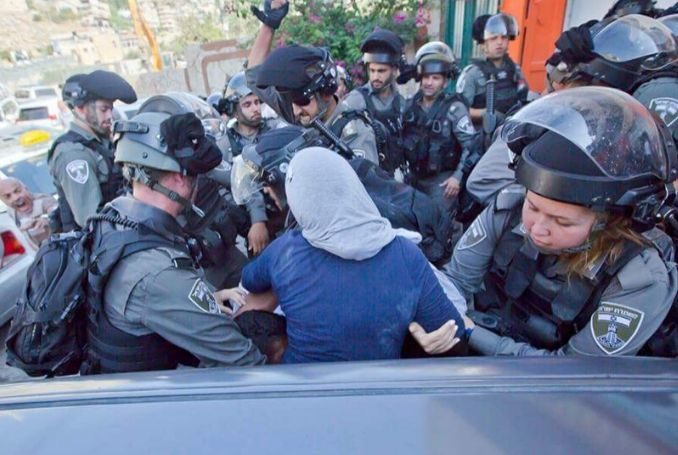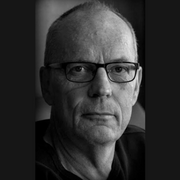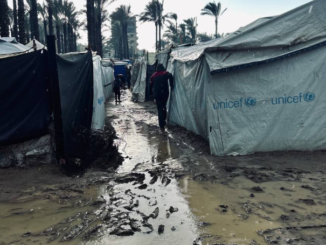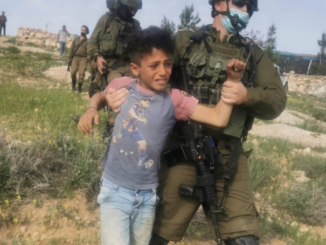
Now afterwards, the memories wash over me. My strongest memory is of
all the conversations. I was often questioned. My questions led to counterquestions.
I was evaluated and my motives, personal values were rejected.
I changed, slowly, slowly. When I left Shufat in East Jerusalem, I was not
the same person as when I arrived in 2003. The process, within myself, was
both fast and slow. First, the brutal reality was so palpable. I met it already
at the airport. I was immediately questioned. But the slow process was even
more tangible. A continuous process was ongoing in my subconsciousness.
Many years have passed. It is now 2020. I am awoken by holding a
small boy’s hand. The boy is not there, but my hand remembers the boy who
walked up next to me. The boy who took my hand, the boy whose house had
just been destroyed, the boy who did not make it home from school in time,
who did not know what had been crushed under the rocks. The boy was quiet,
serious, determined. He was crying on the inside – but there were no tears.
I cannot go back to sleep. I put the hand on my daughter, I think of the boy
in Silwan. I am slowly changing, changing perspective. I am clear on what is
unimportant, but I’m even more sure what is important. I feel connected both
with the present, and with that which is far, far away.
They shouted fascist. They shouted whore. They shouted murderer. They
shouted anti-Semite. I had never been spoken to in such an expressive way.
They showed such hatred, such anger.
We stood together with some thirty people in a roundabout in West Jerusalem.
In our hands, we all held a sign with a big, black hand on which it is said
“STOP THE OCCUPATION”.
Men stopped their cars. Yelled at us, rolled down
their windows and spat at us, showed us the finger. A young woman with
a baby carriage shouted fascist, another shouted anti-Semite, a woman waved
her umbrella at us.
An older woman in the organization Stop Occupation taught me never to
take it personal when someone calls me anti-Semite or fascist. The older
Israeli woman sat crawled up on a wall. She also held a sign. She waved in
my direction, apparently wanted to talk to me. She had seen that I was upset.
She, on the other hand, was calm, no loud cries, no gestures. She had a long
life experience, being a part of it a long time.
“What is your name”, she asks. “Where do you come from?”
She saw my frustration.
”No”, she said. ”Don’t be upset. It is never about you. Mats, it is always
about themselves. For some inscrutable reason, they feel the need to call
you something horrible, even though they have never met you. It is their
fear and ignorance that they are crying out. We become the target. When
someone who doesn’t know you, calls you a fascist, it is never about you.
He who shouts is ignorant, unwilling to learn, unwilling to understand, has a
a completely different experience, lacks empathy”.
She told me that she survived the concentration camp. That she knows what
mankind is prepared to do to the unknown. She told me that she returns here
every week. That she has done so for over twenty years. I asked her why she
comes back. Over ninety years old. Week after week.
Her answer was blunt and somehow obvious:
“Because we are thieves!”
– Mats Svensson, a former Swedish diplomat working on the staff of SIDA, the Swedish International Development Cooperation Agency, has been following the ongoing occupation of Palestine since 2003. He is the author of “Crimes, Victims and Witnesses – Apartheid in Palestine.” (Real African Publishers) and his latest “Apartheid is a Crime – Portraits of Israeli Occupation,” (Cunepress, 2020). Mats contributed this article to Palestinchronicle.com. Visit his Facebook page and contact him: isbjorn2001@hotmail.com.

– Mats Svensson, a former Swedish diplomat working on the staff of SIDA, the Swedish International Development Cooperation Agency, has been following the ongoing occupation of Palestine since 2003. He is the author of “Crimes, Victims and Witnesses – Apartheid in Palestine.” (Real African Publishers) and his latest “Apartheid is a Crime – Portraits of Israeli Occupation,” (Cunepress, 2020). Mats contributed this article to Palestinchronicle.com.







